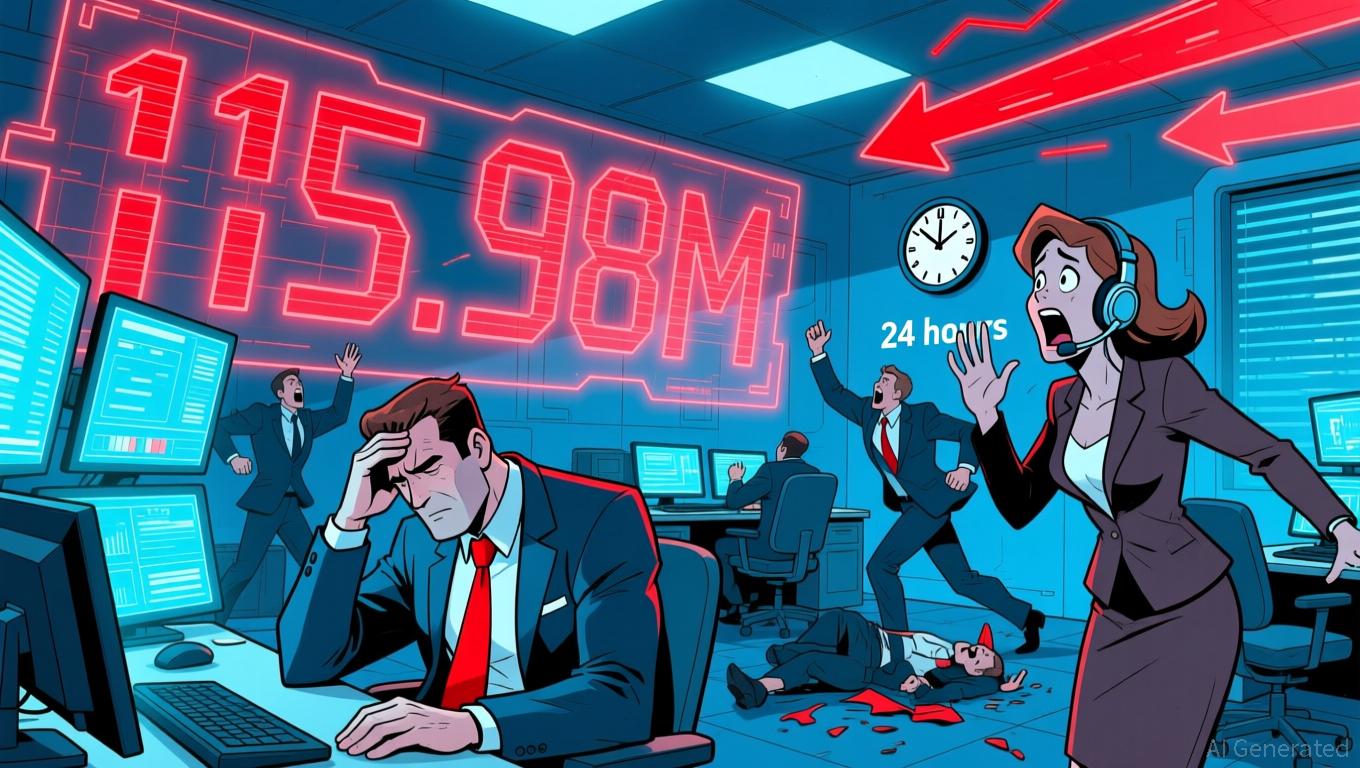Fed Split: Should They Prioritize Fighting Inflation or Supporting Employment?
- Fed policymakers remain divided over prioritizing inflation control or labor-market support, with hawks like Bostic urging rate stability until inflation nears 2%. - Dovish officials argue slowing job growth (29,000 monthly payrolls in late 2024) demands rate cuts to sustain economic momentum despite inflation risks. - Tariff adjustments and delayed economic data complicate decisions, with Treasury's import relief measures facing criticism for potential inflationary rebound. - Looming student loan tax ch
The Federal Reserve has adopted an increasingly cautious stance regarding interest rate reductions, as internal disagreements among policymakers deepen. Officials are divided on whether inflation or a weakening job market represents the more significant risk. Raphael Bostic, President of the Atlanta Fed and known for his hawkish views, reaffirmed his belief that rates should not be lowered until there is "definitive proof" that inflation is moving toward the Fed's 2% goal, according to a report by

Newly announced tariffs have added to the complexity. Treasury Secretary Scott Bessent indicated there would be "significant" tariff reductions on items like coffee, bananas, and other imports to help lower consumer costs, as
Adding to the uncertainty is the prospect of a "tax bomb" for student loan borrowers. Advocacy organizations and Democratic lawmakers have cautioned that debt canceled under income-driven repayment plans will become taxable in 2026, potentially leaving millions with tax bills ranging from $5,800 to $10,000, according to CNBC. Although this issue is separate from monetary policy, it highlights the wider affordability challenges influencing economic discussions.
There is no consensus in the markets about the Fed's upcoming actions. While many investors still anticipate a rate cut in December, the odds have lessened as hawkish voices advocate for maintaining current rates, as Investing.com reported. Should a December cut occur, it would likely flatten the yield curve and weaken the dollar, which could benefit emerging markets and commodities such as gold and copper, according to Investing.com. Conversely, postponing a rate reduction could lead to a sharp increase in Treasury yields and a downturn in stock prices.
Disclaimer: The content of this article solely reflects the author's opinion and does not represent the platform in any capacity. This article is not intended to serve as a reference for making investment decisions.
You may also like
Ethereum Updates: BitMine Capitalizes on Market Slump to Acquire 2.9% of Ethereum Tokens
- Bitcoin fell below $103,000 on Nov 12 amid $120M+ leveraged liquidations on Binance, exposing crypto market fragility. - BitMine Technologies capitalized on the dip, acquiring 2.9% of Ethereum's supply ($828M) to boost treasury holdings. - $341.85M in total crypto liquidations highlighted overextended positions, with Ethereum short sellers losing $76M. - Aggressive bearish bets like James Wynn's $275K 40x short face liquidation risks if Bitcoin recovers above $6,856. - Analysts warn weak ETF inflows and

Prediction Markets Move Into the Mainstream with Polymarket’s Return to the U.S.
- Polymarket relaunches U.S. beta after CFTC fine, now compliant via $112M QCX acquisition. - Partnerships with Yahoo/Google boost legitimacy as trading volume hits $3.01B, targeting sports betting. - Faces competition from Kalshi and ProphetX, which seeks CFTC license for nationwide expansion. - Industry grapples with fraud risks amid scandals, prompting calls for clearer regulatory boundaries. - Traditional firms like eToro and CME explore prediction markets, signaling mainstream adoption.

Bitcoin Updates: Crypto Fear Index at 15—Is This Surrender or a Chance to Invest?
- Crypto Fear & Greed Index hit 15, a seven-month low, signaling extreme investor pessimism amid macroeconomic and regulatory pressures. - Historical data suggests such fear phases often precede market recoveries, with Bitcoin near 2022 rebound levels and Ethereum whale buying surging. - Bitcoin ETFs saw $523M inflows as institutional demand returns, contrasting Ethereum's outflows and Brazil/Japan's new regulatory crackdowns. - Analysts urge long-term investors to view the dip as an opportunity, while sho

Bitcoin Updates: Japan Strives to Foster Crypto Advancements While Ensuring Investor Protection Amid DATs Decline
- Japan Exchange Group (JPX) plans stricter rules for digital-asset treasury (DAT) firms amid volatile stock collapses, including enhanced audits and backdoor listing restrictions. - Metaplanet and Convano, major DATs holding thousands of BTC, have lost over 60% of their value, reflecting global market instability linked to crypto-heavy strategies. - Regulators warn DATs pose risks to retail investors due to reliance on volatile assets, while Japan balances innovation incentives with governance safeguards
